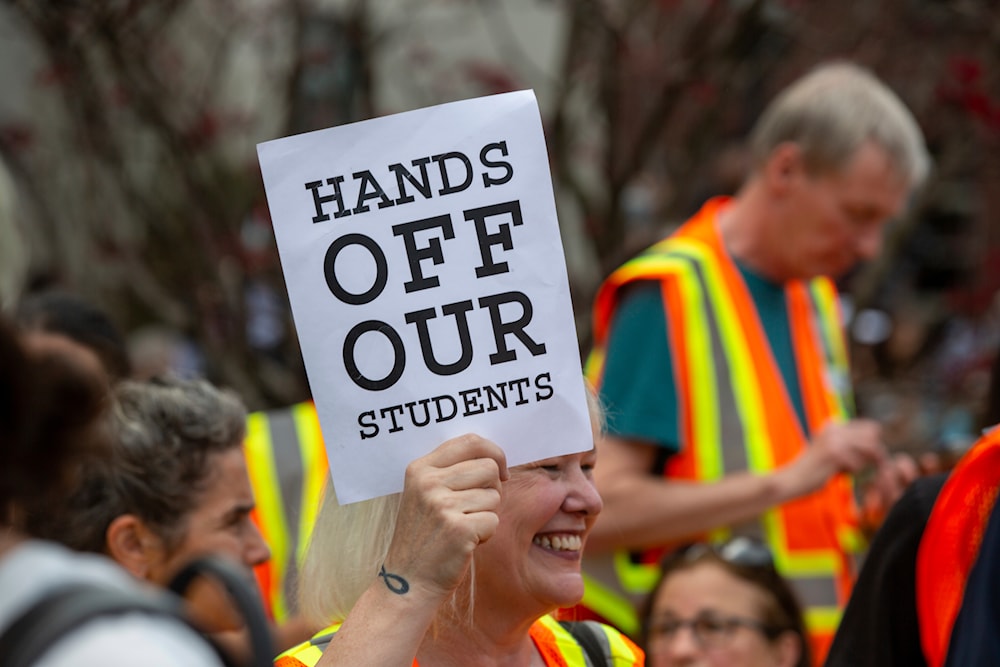Employers reluctant to hire grads who attended pro-Palestine protests
Students in the US who have expressed support for Palestine and protested against Israeli actions are now facing the threat of not being hired because of their views.
-

Demonstrators on the Columbia University campus in New York at a pro-Palestinian protest encampment on April 29, 2024. (AP)
The class of 2024 has entered a challenging job market, and to make matters worse, employers are becoming increasingly hesitant to hire them.
64% of employers have expressed increased concern about hiring graduates over the past five years, according to a survey of 1,268 US business leaders conducted by the higher education publication Intelligent.com.
Nearly a third of employers are particularly concerned about hiring recent graduates who have attended pro-Palestinian protests in the past six months, and 22% are reluctant to hire graduates who have participated in these demonstrations.
Pro-Palestinian protests have erupted across colleges in the US since the onset of the Israeli war on Gaza. Students from high-profile universities, including Columbia University, the University of Virginia, the University of Michigan, the University of Mississippi, and others, have been involved.
Read next: Over 700 pro-Palestine protesters arrested in US college crackdown
According to the survey, nearly two-thirds of employers stated that they were hesitant to hire protesters due to concerns that they might display confrontational behavior in the workplace, while over half expressed worries about their perceived political inclinations potentially making other employees uncomfortable.
Other reasons cited included perceiving protesters as liabilities, potentially dangerous, lacking adequate education, and holding political beliefs that diverged from their own.
“With all the dramatic coverage from recent campus protests and other events, it’s understandable that employers may want to avoid potential distractions and conflicts in the workplace,′ Huys Nguyen, chief education and career development advisor at Intelligent.com, told CNBC Make it.
“However, judging candidates based on their perceived political views can create a slippery slope that employers should try to avoid. Exercising free speech and sharing personal opinions on social issues is a fundamental right, and employers should prioritize a candidate’s skills, experience, and other job-related qualifications over any political biases,” Nguyen added.
Job application process
Not all employers share the same sentiments. About 21% of business leaders surveyed expressed eagerness to hire graduates who have attended protests because they appreciate their outspokenness, strong values, dedication to a cause, and political beliefs that resonate with their own. Meanwhile, 57% of leaders remained neutral on the topic.
There’s a possibility the topic might come up in the job application process, with 31% of business leaders always or frequently inquiring about a candidate’s involvement in protests during interviews. But 54% said they rarely ask about it, according to the survey.
“Political views should never be factored into a candidate’s qualifications during the hiring process,” Nguyen explained, adding that “Not only is it unethical, but there is no meaningful bearing on the ability of a candidate to perform the responsibilities of the job. Additionally, employers who are shown to have bias may open themselves up for legal ramifications in some jurisdictions.”
Nguyen stressed that college students and graduates should not feel compelled to suppress their political views and activism, but they should be aware that some employers may hold biases.
Read next: Pro-Palestinian students in US may be surveilled off-campus: Axios

 3 Min Read
3 Min Read








